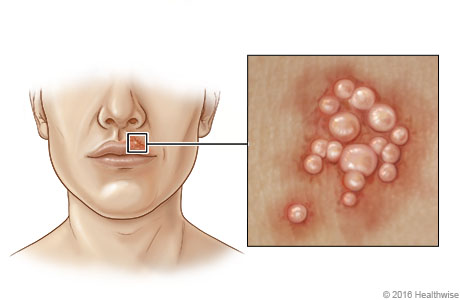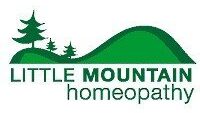
Herpes simplex virus (HSV) is an infectious skin condition characterized by painful blisters or ulcers. It is mainly spread through skin to skin contact such as sex, kissing or sharing glasses or towels. HSV-1 (Type 1 HSV) is mostly characterized by sores around the mouth or face, and most adults are infected with it but it usually lies dormant within the body. HSV-2 infection is usually a more serious condition and is mostly spread through direct sexual contact; the sores are located on the genitals and it is commonly known as genital herpes.
Abstract
Background
Herpes simplex virus type-1 and type-2 cause a viral disease named Herpes. Genital herpes is mainly caused by HSV-2 with symptoms of painful and itchy blisters on the vagina, cervix, buttocks, anus, penis, or inner thighs with blisters that rupture and convert into sores. The homeopathic remedy Rhus Tox has been widely used to treat herpes and has shown invitro anti-inflammatory effects in previous studies.
Purpose
The presented review focuses on relapses and harmful effects caused by acyclovir in modern medicine and the probable antiherpetic activity of Rhus Tox on HSV infection based on its pathophysiology, preclinical findings, on primary cultured mouse chondrocytes, mouse cell line MC3T3e1 and a comparative study of Natrum Mur with Rhus Tox on HSV infection.
Study design
The design of the study focuses mainly on the descriptive data available in various literature articles.
Method
Databases such as PubMed, Google Scholar, Medline and ScienceDirect were used to search the articles. Articles are selected from 1994 to 2022 focusing solely on the competence of Rhus Tox against herpes. Keywords used for the study are antiviral, Herpes, Rhus Tox, in vitro and homeopathy.
Results
The review includes fifteen articles, including 4 full-text articles on HSV, 6 in vitro studies of homeopathic compounds performed on the herpes virus, and 5 articles based on the pathophysiology and effects of Rhus tox. The review article proposes the anti-inflammatory and antiviral action of the homeopathic remedy Rhus Tox which can be used in crisis conditions when the physician doubts the simillimum, as it prevents further outbreaks of HSV infection.
Conclusion
The homeopathic medicine Rhus Tox has no cytotoxicity observed under in vitro conditions and can be used to treat herpes infection. Further studies are needed to confirm the results under in vitro and in vivo conditions as well as in clinical trials.
Abstract
Human herpes simplex virus manifests itself as painful vesicles in the area of infection, followed by
ulceration. This article describes a specific case of the author’s successful treatment of herpes simplex
virus using homeopathy and isopathy. After treatment with herpes nosodes, Ranunculus bulbosus, and
Asclepias tuberosa, symptoms of the virus did not appear for more than 10 years, indicating a complete
cure.
In this in-vitro study, human cell cultures were infected with influenza A virus, respiratory syncytial virus, human rhinovirus or herpes simplex virus type1, and then treated with Euphorbium compositum, a homeopathic complex. Various anti-viral drugs such as acyclovir, ribavirin and amatadine were used as positive controls against which to compare the results of the complex. When compared with control cells exposed to the same concentration of ethanol used in the complex, the homeopathic complex showed anti-viral properties comparable to the effects of the drugs against respiratory syncitial virus and herpes simplex virus type 1.
Cultured tissue cells infected with herpes simplex virus 1 (HSV-1), human rhinovirus (HRV), adeno 5 (A5V) and respiratory syncytial virus were exposed to Engystol, a homeopathic combination product. These cells were then assayed for virus clearance using plaque reduction, virus titration and Elisa methods. The results of these assays showed an 80% reduction in HSV-1 specific proteins, a 73% reduction in A5V specific proteins and a reduction in infectivity of RSV by 37% and HRV by 20%.
